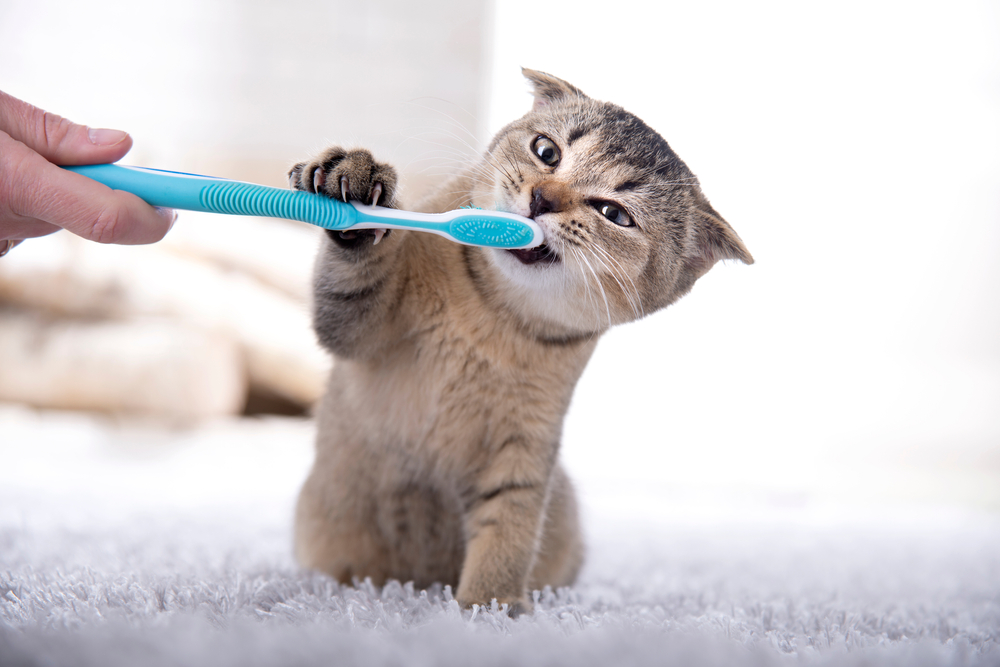10 Options for Home Dental Care for Pets

Maintaining good dental health is as crucial for pets as it is for humans. Poor dental hygiene in pets can lead to various problems, including bad breath, gum disease, and tooth loss, and can even affect their overall health. Fortunately, there are several options for home dental care for pets.
Natural Practices
Chew Bones: Natural chew bones are fantastic for your pet’s dental health, but it’s important to select bones that are safe and appropriate for your pet to avoid choking hazards or tooth damage.
Dental Treats and Chews: There are many types of dental treats and chews available that can help reduce plaque and tartar buildup. Chewing helps massage the gums and removes food particles and bacteria. Be sure to choose a size and type that’s appropriate for your pet’s size and chewing habits.
Dental Diets and Foods: Some pet foods are specially formulated to help maintain dental health. They are designed to be more abrasive than regular pet food, helping to clean teeth as the pet chews.
Water Additives: These are liquid solutions that you can add to your pet’s drinking water to help control plaque and tartar formation. They often contain ingredients that help freshen breath and clean the mouth.
Toys Designed for Dental Health: Many toys are designed to help clean teeth as pets play. These toys can provide some dental benefits, but they should be used in conjunction with other dental care methods.
Getting Hands-On
Tooth Brushing: Regular brushing is the most effective way to clean your pet’s teeth. Use a toothbrush designed for pets along with pet-safe toothpaste (human toothpaste can be harmful to pets). Start slowly and gradually to get your pet accustomed to the process.
Dental Wipes: These are a good alternative to tooth brushing, especially for pets that resist the toothbrush. Dental wipes are rubbed against the pet’s teeth and gums to remove plaque.
Oral Sprays and Gels: These products can help reduce bacteria in the mouth and freshen breath. They can be applied directly to the pet’s teeth and gums.
Regular Oral Inspections: Regularly checking your pet’s mouth can help you spot any signs of dental issues early, such as red or swollen gums, bad breath, or changes in eating habits.
Professional Dental Cleanings: While not a home care option, regular professional cleanings by a veterinarian are important for maintaining your pet’s dental health, especially for addressing issues that can’t be managed through home care alone.
Conclusion
When implementing home dental care routines for your pets, it’s important to introduce any new method gradually and gently. Always monitor your pet’s reaction to these products, and consult with Eascor Animal Hospital if you notice any signs of dental problems or if you have concerns about the best dental care practices for your pet.
